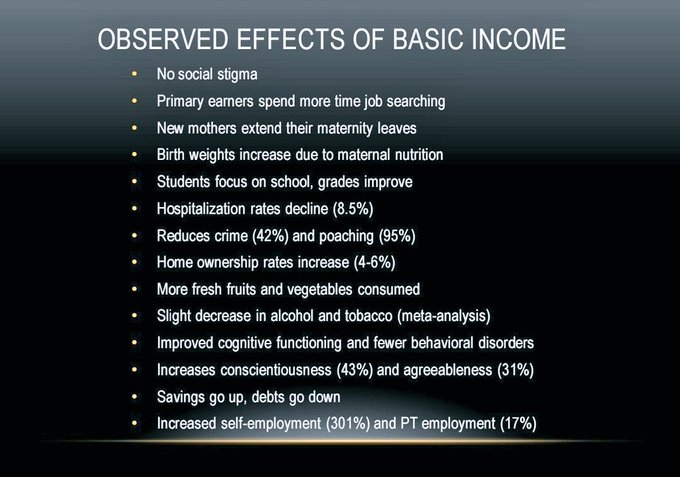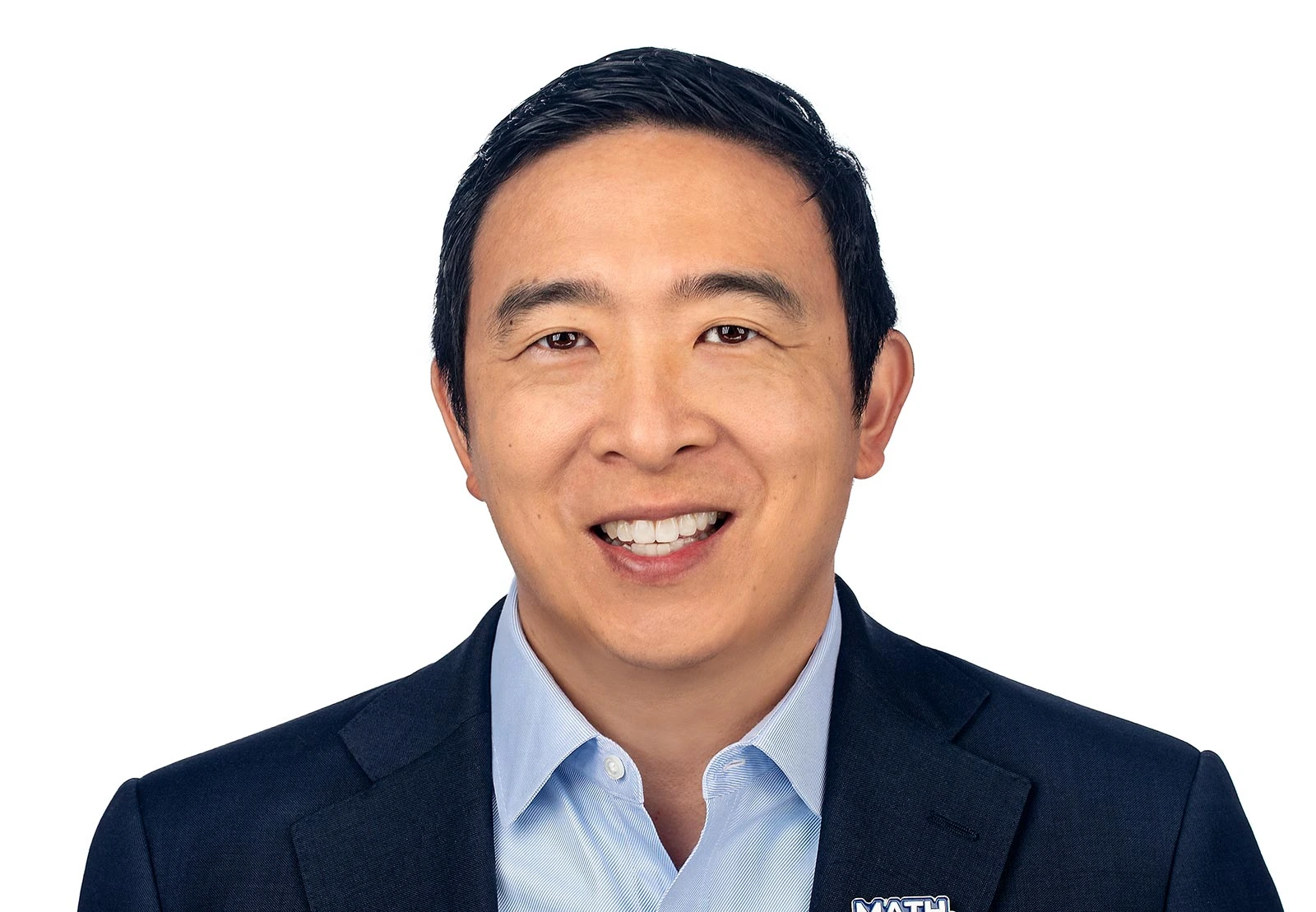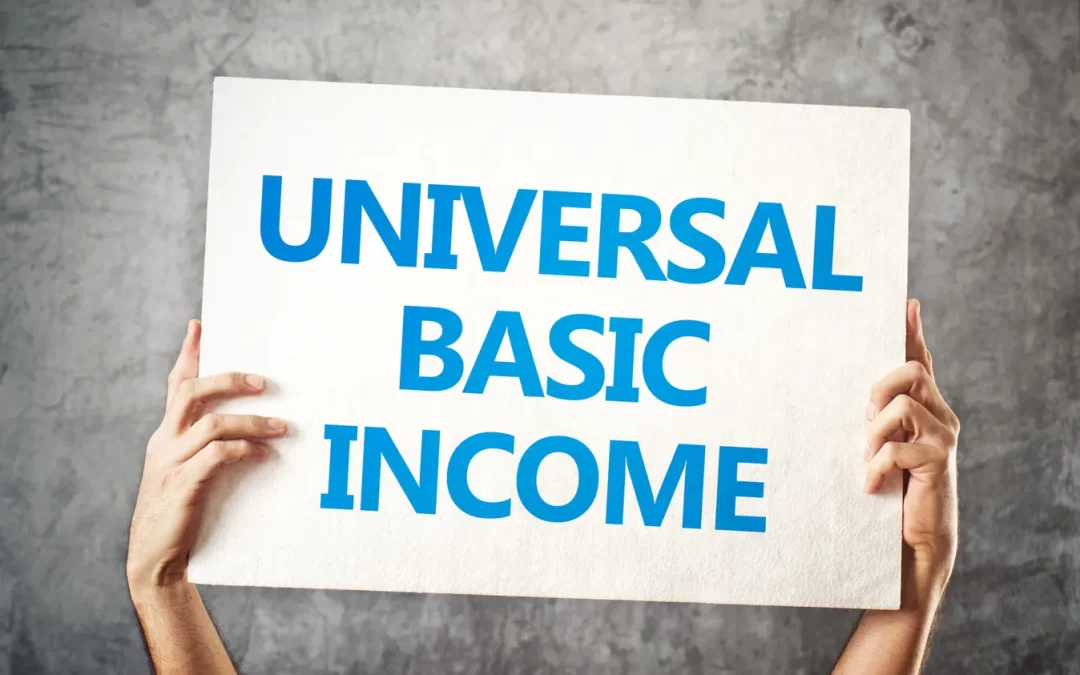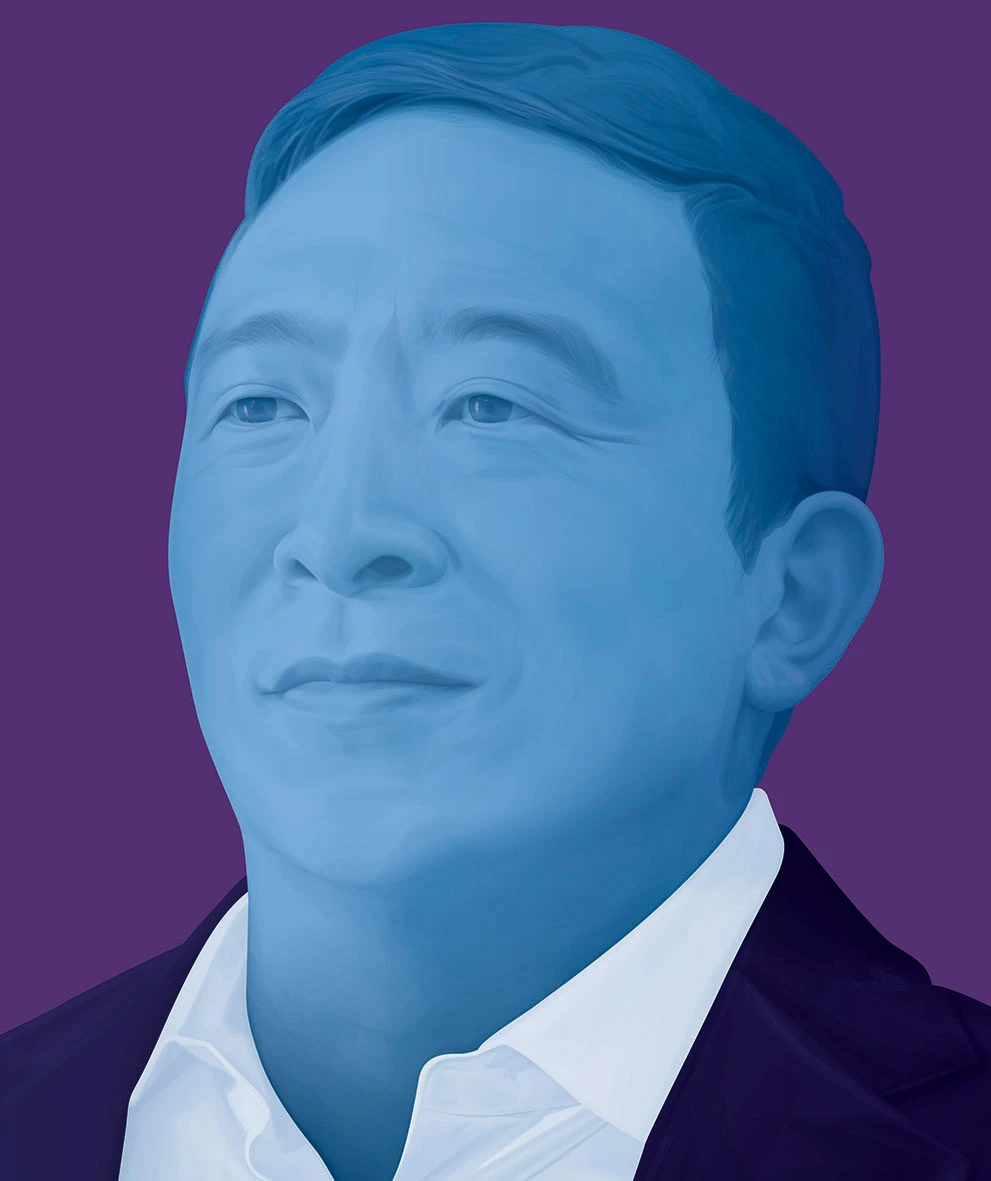
Why Basic Income Works Right Now: Let’s Make It Universal
Universal Basic Income (UBI) has moved from fringe concept to a mainstream economic solution. As job automation accelerates and inequality widens, UBI offers a bold but pragmatic path forward. This piece explores how UBI works, why it’s needed now more than ever, and how we can make it a reality.
Two of Andrew Yang’s key policy positions resonate deeply with me: Universal Basic Income (UBI) and his warning about the impending Robot Apocalypse. As automation continues to transform industries and displace millions of jobs, it is clear that we are entering a new age that, without proper intervention, could exacerbate economic inequality and social unrest. This is not just a hypothetical future—it’s a reality already in motion.
During his 2020 presidential campaign, Yang brought the dark side of automation into the national conversation. With millions of jobs at risk, particularly those held by working-class Americans, we face an urgent question: How do we transition into an automated economy without leaving a vast majority of Americans behind? Yang’s answer was clear: UBI, which he coined the Freedom Dividend, a monthly stipend aimed at mitigating the financial shocks of automation while offering individuals more freedom and security.
However, since the inception of my interest in UBI, I’ve come to learn even more through experts like Scott Santens, who offers fresh perspectives on how UBI can reshape not just our economy but our society as a whole. With these insights, let’s take a deeper look at the role of UBI in today’s world.
Automation: The Real Catalyst of Job Losses
Yang was one of the first major political figures to highlight that robots, not immigrants, are the real cause of economic dislocation for millions of American workers. He pointed out that many of the most common jobs in America—administrative and clerical work, retail, food service, truck driving, and manufacturing—are under immediate threat of automation.
Consider the case of truck drivers. There are approximately 3.5 million truck drivers on the road today, and autonomous trucks are expected to be widespread within the next 3-5 years. The potential savings from replacing human drivers with robots are significant—an estimated $168 billion per year—as robot trucks can operate 24/7 without the need for rest. Similar trends are unfolding in call centers, where artificial intelligence is already replacing thousands of jobs.
Yet, despite the urgency of these changes, there remains a vast divide in our nation. Many still hold to outdated narratives, blaming immigrants or other external forces for the economic losses caused by automation. Andrew Yang and Scott Santens argue that we need to change the conversation to focus on the actual drivers of these economic shifts—and UBI is the most practical solution.
UBI as More Than a Reaction to Automation
While Yang’s focus on the Robot Apocalypse has been a powerful wake-up call, Scott Santens offers a broader vision. Automation doesn’t have to be feared as a doomsday scenario. Instead, Santens suggests that UBI is a tool to ensure that everyone benefits from technological progress.
Rather than viewing UBI as a reactive policy meant to catch people falling through the cracks, Santens advocates for it as a proactive measure to grant individuals more freedom, time, and choice. By decoupling income from employment, we allow people to pursue education, entrepreneurship, creativity, and personal growth without being solely reliant on increasingly precarious jobs.
New industries and technologies are meant to elevate society, not displace it. UBI ensures that everyone has access to the resources they need to thrive in this evolving economy, giving people the financial freedom to engage with these changes on their terms rather than being victimized by them.
Economic Efficiency: UBI as an Investment, Not Welfare
One of the primary criticisms of UBI is that it resembles a welfare program—simply handing out money without requiring work in return. However, Scott Santens consistently reframes this argument by emphasizing UBI as an investment in economic efficiency, not a giveaway.
Santens points out that the bureaucratic complexities of targeted welfare programs are far more costly in the long run than a simple, universal income. Under our current welfare systems, countless resources are spent determining eligibility, managing paperwork, and addressing the many gaps in coverage that arise. In contrast, UBI is an elegant solution that benefits everyone equally, cutting red tape and putting money directly into the hands of people who will immediately inject it back into the economy.
It’s important to remember that most Americans living paycheck to paycheck would spend their UBI on essentials—car repairs, healthcare, groceries—all of which stimulate local economies. This results in increased revenue for both states and the federal government. We often fail to realize that giving people money isn’t a drain on resources; it’s a way to fuel economic growth and innovation.
Corporate Welfare vs. Social Dividends
In your original article, you correctly pointed out the hypocrisy of corporate welfare. Each year, companies that benefit most from automation pay little to no taxes despite their immense profits. So why not ask these same companies to contribute to society by helping fund a universal income?
Santens takes this idea a step further, proposing that automation companies—who stand to profit enormously by replacing human workers—should contribute to a social dividend. Through higher corporate taxes or shared ownership models, we can ensure that the profits from automation benefit society, not just the shareholders of large corporations. In this sense, UBI becomes a right rather than a handout, reflecting the collective contribution of society to technological progress.
This social dividend would act as a safeguard, protecting those who lose jobs to automation while ensuring that the immense wealth created by these technologies is more fairly distributed.
UBI: A Bridge Across Political Divides
One of the most powerful aspects of UBI, as both Yang and Santens have noted, is its ability to unite people across political divides. UBI appeals to progressives because it reduces poverty and inequality. At the same time, it appeals to libertarians and fiscal conservatives because it minimizes government intervention in people’s lives, replacing complex welfare programs with a simple cash transfer that allows individuals to decide how best to spend their money.
UBI can transform the way we think about economic security, shifting the narrative from scarcity and division to one of abundance and shared prosperity. It offers a way to manage the transition into an automated economy that ensures no one is left behind.
Conclusion: A Call to Action
We are living in a time of extraordinary technological advancement, but also extraordinary uncertainty. The looming reality of widespread automation threatens to displace millions of jobs, potentially deepening the economic divisions in our society. Yet, we have a choice. We can either cling to outdated economic models or embrace Universal Basic Income as a way to empower individuals, strengthen communities, and prepare for the future.
Andrew Yang initiated this conversation in the mainstream, but it is thinkers like Scott Santens who have expanded it into a truly transformative idea—one that could reshape our economy for the better. UBI is more than a response to automation; it’s an investment in people. It’s time to take action, adopt practical solutions, and build a future where everyone can benefit from progress.
How the US Is Destroying Young People’s Future | Scott Galloway | TED
May 2, 2024
In a scorching talk, marketing professor and podcaster Scott Galloway dissects the data showing that, by many measures, young people in the US are worse off financially than ever before. He unpacks the root causes and effects of this “great intergenerational theft,” asking why we let it continue and showing how we could make it end. (Note: This talk contains mature language.)
Adjusting our Economy | Universal Basic Income Discussions with Gerald Huff
Recognize the vicious cycle. Every unexpected expense creates a crisis when you’re living paycheck to paycheck. Universal Basic Income will alleviate that constant stress and uncertainty. It will allow people to plan for their future, not just survive until the next paycheck.
ITSA Newsletter: January 2025
Big recent happenings in the world of universal basic income (UBI)
Here’s the latest and biggest Basic Income news:
‣ South Korea could, as soon as this year, become the first country to adopt UBI
‣ Mark Carney could replace Justin Trudeau, which could potentially lead to basic income in Canada in response to AI
‣ A study of a monthly cash program in Brazil has shown it cut tuberculosis rates in half, preventing millions of hospitalizations over two decades
‣ Final results of the 2-Year “Minneapolis Guaranteed Basic Income” pilot released
‣ Final results of the 2-Year “Compton Pledge” pilot released

I’ve been researching the idea of Unconditional Basic Income since 2013. Here’s a list of findings I’ve compiled from various UBI experiments, unconditional cash transfer studies, and cash dividend research.
The data speaks for itself.
Data: https://t.co/gTtB9g78KU
— Scott Santens (@scottsantens) September 14, 2018
The Future Starts With Us
Universal Basic Income isn’t a fantasy—it’s a tested, practical response to the realities of automation, inequality, and an unstable economy. If we act now, we can create a fairer future that works for everyone.
Copy the link below and share it in your circle of influence—whether it’s social media, your community group, or a late-night group chat on how to fix the world.
🔗 Or use the share buttons below this article to post directly to your favorite platform.
CNN Host Tries to Grill Andrew Yang and Epically Fails
Former 2020 Democratic Presidential candidate Andrew Yang faces tough questioning from CNN’s Richard Quest on his support for congressman Tim Ryan and Ro Khana’s ‘Emergency Money for the People Act’ which would give $2,000 a month to most adults in the US.This week on Shark Tank – Mark Cuban joins Andrew Yang to talk UBI
The YouTube title above should be titled this week on Yangspeaks.com, Mark Cuban guests to talk UBI. We all know why the Yang speaks crew chose the better keyword “Shark Tank” to attract more viewers. Who can blame them if the content warrants?
Andrew Yang On UBI, Redefining Progress & Human-Centered Capitalism
2020 presidential candidate Andrew Yang joins Rich to share the merits of universal basic income, human-centered capitalism, and redefining progress as a nation. To read more about Andrew and peruse the full show notes click here👉🏾https://bit.ly/richroll640

John McWhorter on Woke Racism | Forward with Andrew Yang
Columbia linguistics professor John McWhorter argues that a new religion disguised as antiracism is hurting Black communities and weakening the American social fabric. Woke Racism – https://www.penguinrandomhouse.com/bo… John McWhorter – https://twitter.com/JohnHMcWhorter Andrew Yang – https://twitter.com/AndrewYang
Searching For Light with Radhanath Swami | Rich Roll Podcast
Thanks for watching! Read all about Radhanath Swami here 👉🏼 https://bit.ly/richroll543A
Radhanath Swami is a spiritual guru, mystic, author & humanitarian. A monk in the Bhakti tradition for nearly 50 years, Radhanath has dedicated his life to helping people find meaning while leading social initiatives which feed, house, and heal millions of those in need. Today His Holiness Radhanath Swami shares his thoughts with Rich Roll on compassion, unity, and the importance of having a spiritual practice.
Why we need the Forward Party
Welcome to the Forward Party!
I started the Forward Party for a few big reasons. The main one is one we can all see – the current two-party duopoly is not working. While the two major parties have different issues, we can all see that polarization is getting worse and worse, with 42% of both parties regarding the other as not just mistaken, but evil. Neither side is able to meaningfully solve problems, so we all get angrier and angrier.
Join the Forward Party – https://forwardparty.com
Krystal Ball interviews Andrew Yang about starting a new political party
Kurzgesagt – In a Nutshell
What is UBI? How would free money change our lives.
 UBI[/caption]
UBI[/caption]
Twitter billionaire Jack Dorsey just donated $15 million to fund basic-income pilot projects in at least 9 US cities
-
Twitter CEO Jack Dorsey just donated $15 million to Mayors for a Guaranteed Income, a coalition of US mayors interested in starting basic-income pilots.
-
Several pilots are already underway, including a recent trial in Saint Paul, Minnesota.
-
Dorsey’s investment will help additional cities like Pittsburgh and Los Angeles launch their programs.
-
Visit Business Insider’s homepage for more stories.
Starting in April, millions of Americans received stimulus checks – a no-strings-attached payment meant to alleviate financial hardship. To proponents of a basic-income policy, the idea sounded familiar.
Basic-income programs essentially pay people simply for being alive as a way to alleviate poverty. Michael Tubbs, the mayor of Stockton, California, launched one of the US’s first guaranteed-income pilots – a program called SEED – last year. The experiment has been giving monthly payments of $500 to 125 of the city’s poorest residents since February 2019.
Tubbs also spearheads the group Mayors for a Guaranteed Income, a coalition of mayors interested in starting similar basic-income pilots across the US. In July, the coalition received $3 million from Twitter CEO Jack Dorsey’s #StartSmall initiative to fund global COVID-19 relief. On Tuesday, the group announced that Dorsey is giving another $15 million to support more basic-income pilots.
Tubbs told Business Insider that he and Dorsey started discussing a plan to promote basic income earlier this year.


